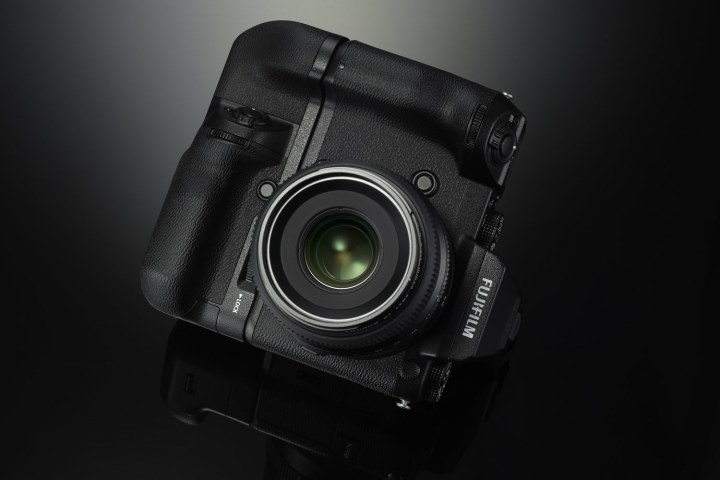
We have had the Metabones Speedbooster and other similar lens mount adapters available for many years now. The concept is simple, converting full frame DSLR lenses for use on smaller sensor APS-C or Micro Four Thirds cameras by focusing the image down from the full frame size to one that covers the sensor being adapted to. Well, now with Fujifilm’s mirrorless medium format GFX 50s on the market many are wanting to adapt their DSLR lenses to this new system.

There are already adapters on the market that do this. But they lack any optics of their own, and due to the huge sensor size difference between the GFX sensor and a 35mm Canon or Nikon sensor, this leads to a terrible vignette on most lenses. Enter the Venus Optics Laowa Magic Format Converter, a lens adapter that takes Canon or Nikon lenses and upscales them to cover the full GFX 50s sensor, effectively working like a Speedbooster in reverse.
But it does not come without a cost. Just as the Speedbooster focuses the imaging circle and light, leading to wider fields of view and increased light (~1 stop improvement), the Laowa lens adapter works in exactly the opposite manner, tightening the field of view and losing ~1 stop of light. Venus Optics used the example of a 13mm F2.8 lens effectively turning into a 17mm F4 lens when use with the adapter on the GFX 50s.

While this may seem like a huge disadvantage, a little perspective will show that it actually isn’t, if you select a lens with the right focal length and aperture to fit your needs once adapted. For example, the fastest lens that Fujifilm currently produces for the GFX 50s is a 110mm F2 lens. If you were to adapt a 85mm F1.4 lens from your current DSLR kit, you would effectively have the same lens without having to shell out the money for the Fujifilm version. Now this obviously doesn’t account for the absence of autofocus, or any image quality loss that may occur (the latest metabones adapters are known to affect the IQ of a lens very little, but we will have to wait and see how this adapter works). It is also worth pointing out that in the medium format world F4 is a pretty fast lens, so converting from F1.4, F1.8, or F2 will all still likely give you a faster lens than any medium format lens you may be considering.
In the end, with such a limited selection of lenses currently available for the Fujifilm GFX 50s at the moment this new adapter could be the answer that some are looking for to help them make that jump to medium format and help them get by until the lenses they want or need are developed into the GFX system natively.
Pricing for the new adapter has not yet been announced, but Venus Optics says that it expects to begin shipping in July of this year. For more information on the Laowa Magic Format Converter you can take a look at the Venus Optics website where the company has both RAW and JPEG image samples for you to pixel peep.


